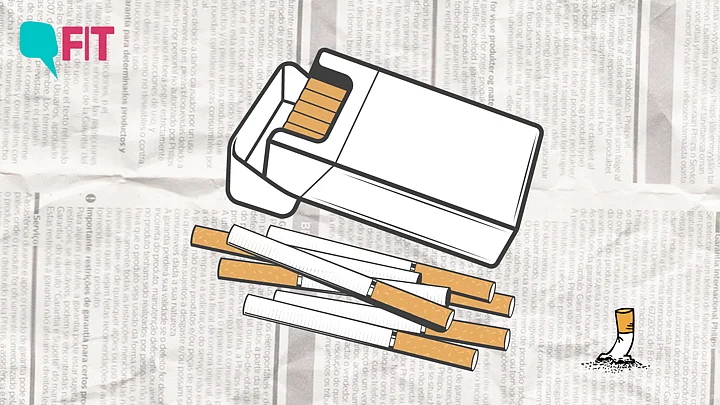In the Union Budget for 2023 on Wednesday, 1 February, Finance Minister Nirmala Sitharaman announced a 16 percent hike in customs duty on cigarettes – making them more expensive.
An immediate impact of this was that the stocks of ITC, Golden Tobacco, NTC Industries, VST Industries, and Godfrey Phillips India slumped in the Bombay Stock Exhange (BSE).
But will this have any real impact on ground? Is there a correlation between price and consumption of cigarette? FIT asked health experts.
Will The Increased Cost Decrease Smoking?
Dr Vineet Kaul, Associate Consultant, The Oncology Centre, CK Birla Hospital, Gurugram, feels that the increased cost is a welcome move, he isn't very sure if that could discourage people from smoking.
He says:
"I don’t think the number of people smoking will reduce. Or the number of cigarettes being smoked by someone will reduce. Because if someone has the money to spend Rs 100 on cigarettes each day, they’ll also have Rs 120 to spend on it. The price increase is not significant enough to make a huge difference. But it might bring the risks of smoking to the forefront of people's minds."
Dr Arvind Kumar Chairman, Institute of Chest Onco-Surgery and Lung Transplantation, Medanta Robotic Institute Medanta Hospital, Gurugram, agrees with Dr Kaul. He feels that while this might work to an extent, someone with an addiction wouldn't be deterred by a minimal price hike.
However, a lot of studies done on the subject seem to have a different viewpoint.
A 2016 blog on Tobacconomics, based on a study titled The Effect of Cigarette Prices on Cigarette Sales: Exploring Heterogeneity in Price Elasticities at High and Low Prices, said, "Increasing cigarette prices by 10 percent reduces cigarette consumption by 3.1 percent on average."
In fact, another 2004 study based on a survey conducted in Taiwan said:
"Male smokers who had no income or who smoked light cigarettes were found to be more responsive to changes in cigarette price."The Effect of Cigarette Price Increase on the Cigarette Consumption in Taiwan: Evidence From the National Health Interview Surveys on Cigarette Consumption
So do these studies suggest that people stop smoking when cigarette prices increase? Well, yes and no.
While some studies suggested that people smoked less when prices shot up, others showed that they simply shifted to a cheaper brand.
"Higher cigarette prices result in decreased cigarette consumption, but price sensitive smokers may seek lower priced or tax-free cigarette sources, especially if they are readily available."Higher Cigarette Prices Influence Cigarette Purchase Patterns
Is Smoking A Burden On Our Healthcare System?
Majorly. The Indian Council of Medical Research had in 2019 revealed that tobacco is one of the main reasons for over 30 percent (or a third) of all cancer cases in the country. This figure was higher in men – with 48.7 of cancers in men linked to tobacco and only 16.5 percent in women.
Between 2012-19, 13,32,207 cases of cancer were reported in India. This comes as no surprise as India has the second largest population of smokers in the world, according to the Global Burden of Disease Study.
In fact, Dr Kaul adds:
"A smoker is 15-25 percent more likely to get cancer than a non-smoker."
Not just cancer, but other co-morbidities such as lung diseases or heart issues also usually turn fatal for smokers.
Dr Kumar shares that smoking can harm your lips, cheek, tongue, throat, lungs, and even your abdominal organs.
Lucknow University's Head of Economics Department Professor Arvind Mohan told Economic Times that tobacco consumption in India puts a burden of around 1.04 per cent of our GDP.
How To Actually Discourage Smoking
Dr Kaul suggests that on an institutional level, the government should strengthen the health sector in such a way that more tobacco and cancer awareness programmes are introduced.
He adds that they should also try to bring out behavioural change to discourage smoking.
On an individual level, Dr Kaul suggests that instead of solely relying on medication or nicotine supplements, smokers should focus on building a strong willpower to quit and consult a psychologist or tobacco cessation expert if the need arises.
Dr Kumar also adds that organising support groups and even seeking out support from the individuals around you can help you quit.

